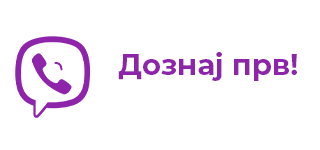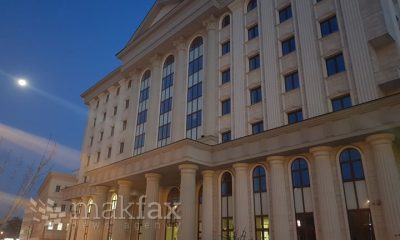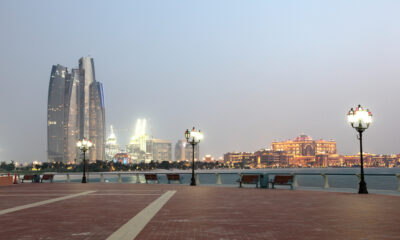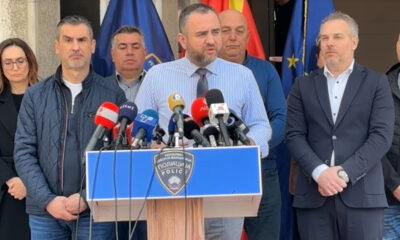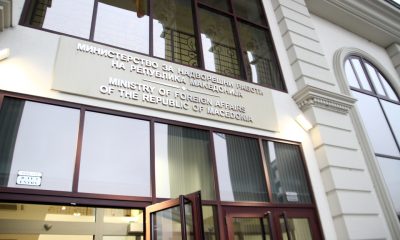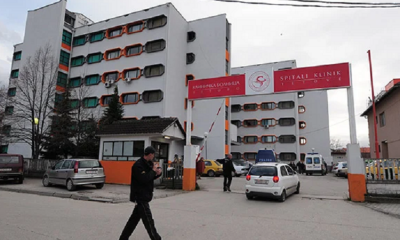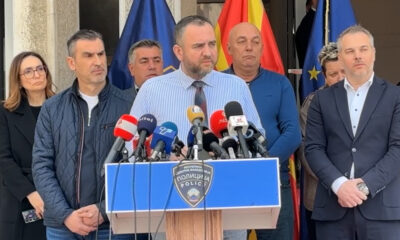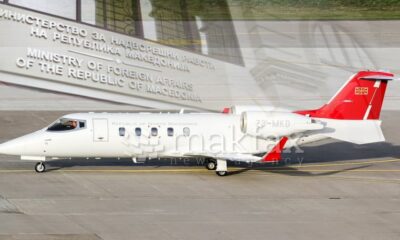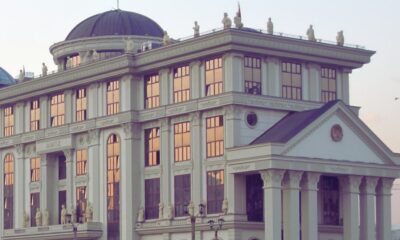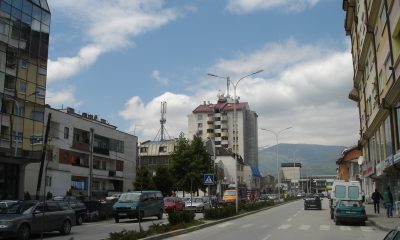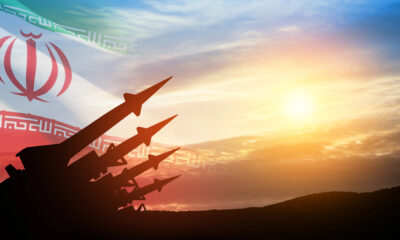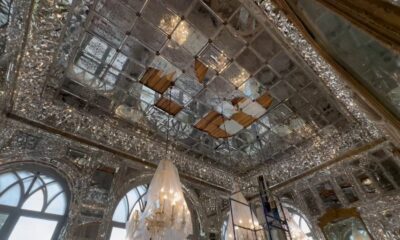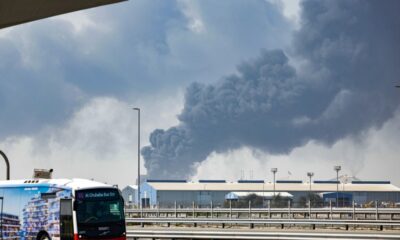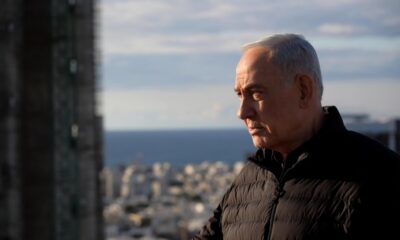Општество
Building a culture of peace for the harmonization of the Balkans

The development of a culture of peace is what can contribute towards the harmonization of the relations between the Balkan countries and nations – this is the message from the first Macedonian Peace Forum, organized by the south korean nongovernmental organization `Heavenly culture, world peace, restoration of light`, (HWPL) that was held on Tuesday in Skopje, Macedonia.
The speakers at the Forum, which are also members of the Macedonian Peace Advocacy Committee, established by HWPL, agreed that building a culture of peace should be a priority for a society like the one in Macedonia, where there are numerous problems and challenges that always can lead to potential conflict. The Declaration for Peace and Cessation of War, document that was prepared by the HWPL Peace Law Committee and Chairman Man Hee Lee, is a powerful tool that can contribute to the resolution of the conflicts that have been going in this region.
`What this Declaration does as a step forward in terms of what we have so far seen in the international law, is that it advocates for a change in the system of the UN and its modernization. The Declaration provides that these conflicts that arise and that will always be there, global issues etc, can not be resolved just between the two superpowers, and gives a decisive influence to smaller countries, especially those countries that concerned of a particular conflict. In this region we still have lots of challenges that can lead to an internal, but also external conflicts`, said Milka Ristova, a longtime judge of the Supreme Court of the Republic of Macedonia.
According to Ristova, in the Balkan societies there are many reasons that can cause conflicts, and some of them are also connected to the growing social differences and problems.
`Social differences and problems we have with the mass impoverishment of the population and the establishment of a small elite of wealthy people is a potential cause for internal conflict. We should be working to build a culture of peace and a culture of tolerant dialogue, the ability for all outstanding issues to be discussed in a peaceful way, to avoid conflicts, and this Declaration stands for that purpose and advocates the peaceful resolution of conflicts. There are many conventions and sources of international law, but there is still no important mechanism for the implementation of those decisions. Macedonia also has specific experience about it, we have the ruling of the International Court regarding the NATO integration because of the name dispute with Greece, but there is no mechanism to implement this decision. This Declaration is committed not only to the solving, but also to perfect the mechanisms of the implementation of the rulings`, Ristova concluded.
According to Sladjana Taseva, executive director of Transparency Macedonia, there are many documents that constitute the system of the international law, but what is lacking are mechanisms for implementation, and the Declaration for Peace and Cessation of War offers exactly these type of mechanisms.
`Beside this Declaration there are many international documents and standards that govern these matters and whose implementation should be carried out, we should respect what we have accepted and signed, and in that way we can take the next step for achieving peace and harmony in world. We need to develop a culture of peace. The image of the Balkans as part of Europe shows that this part is still unstable, we have a transitional period that lasts for 26 years now, we had periods of war and in Macedonia we had a different type of internal conflict that sparked interethnic conflicts and clashes. The same situation is in other countries in the Balkans, that are still taking too long to reform and looking at the Balkans and Macedonia as a whole, from the outside we are still being viewed as a part that is unreformed and unstable, and as a potential cause for security crises. This Declaration contains articles that relate to the borders, then to the rights for self-determination, ie articles that strongly affect us and if we begin to strive for the implementation of this Declaration, because the documents is relevant to us as a country and a region, we can contribute to the building a culture of peace in the Balkans, in Europe and in the world. Our friends from South Korea have offered us an extraordinary opportunity`, said Taseva.
The transitional period and turbulences through which Macedonia has been in the last 26 years should not be a obstruction to focus on the the future and to promote peace, added Irina Pockova, representative of the Regional Women’s Lobby.
`We can agree in the last 26 years we have been living in a difficult and painful transitional period, with a lot of unemployment, conflicts, victims, and many negative effects in the society, we all know the turbulences that Macedonia has been through. We know that we cannot change the past, but we can build the future as we want, with the promotion of peace and the building of the European values, democracy and the rule of law. All this can be achieved if all together stand up for it`, said Pockova.
The president of the National Council for Gender Equality, Savka Todorovska, however believes that the growing role of women in peace building can contribute to quicker resolution of all conflicts and problems.
`Personally I am convinced that by building peace through women would result in the end of wars and a far quicker resolution of many differences, regardless of the reasons for the conflict. In life there are different needs and interests that create these conflicts, but they can always be resolved for the interest of the communities and its citizens, no matter from which perspective they are seen. As long as more people get involved as supporters of peace, then these conflicts will be resolved peacefully`, said Todorovska.
The inspiration which comes from the representatives of the International Peace Youth Group (IPYG), part of HWPL, in terms of the commitment to peace is something that should be also used by the Macedonian youth to achieve this objective, believes Maja Stalevska, president of the Youth Centre for Equal Opportunities.
`The representatives of the International Peace Youth Group impressed us with their commitment to peace and we realized that if you trully wish for something to happen, then nothing can prevent its realization. Their dedication is incredible, it inspires us and we believe that it will bear success`, Staleska noted.
The first Macedonia Peace Forum that was held on Tuesday is only a part of the activities of the south korean nongovernmental organization HWPL in the Balkans, which also organized a debate last week in Ljubljana, Slovenia. The debate focused on the importance of the Declaration for Peace and Cessation of Wars and for the impact of this document in the reconciliation of the Balkan countries and nations. The Declaration has so far gained over half a million signatures in over 157 countries and the expectations are that by the end of the year this figure will increase two million signatures, after which the document can be presented to the United Nations./end/mf/bs
©Makfax.com.mk Доколку преземете содржина од оваа страница, во целост сте се согласиле со нејзините Услови за користење.

Македонија
Халкбанк со голема акција за пошумување во Делчево како дел од иницијативата „Еден милион садници за пет години“
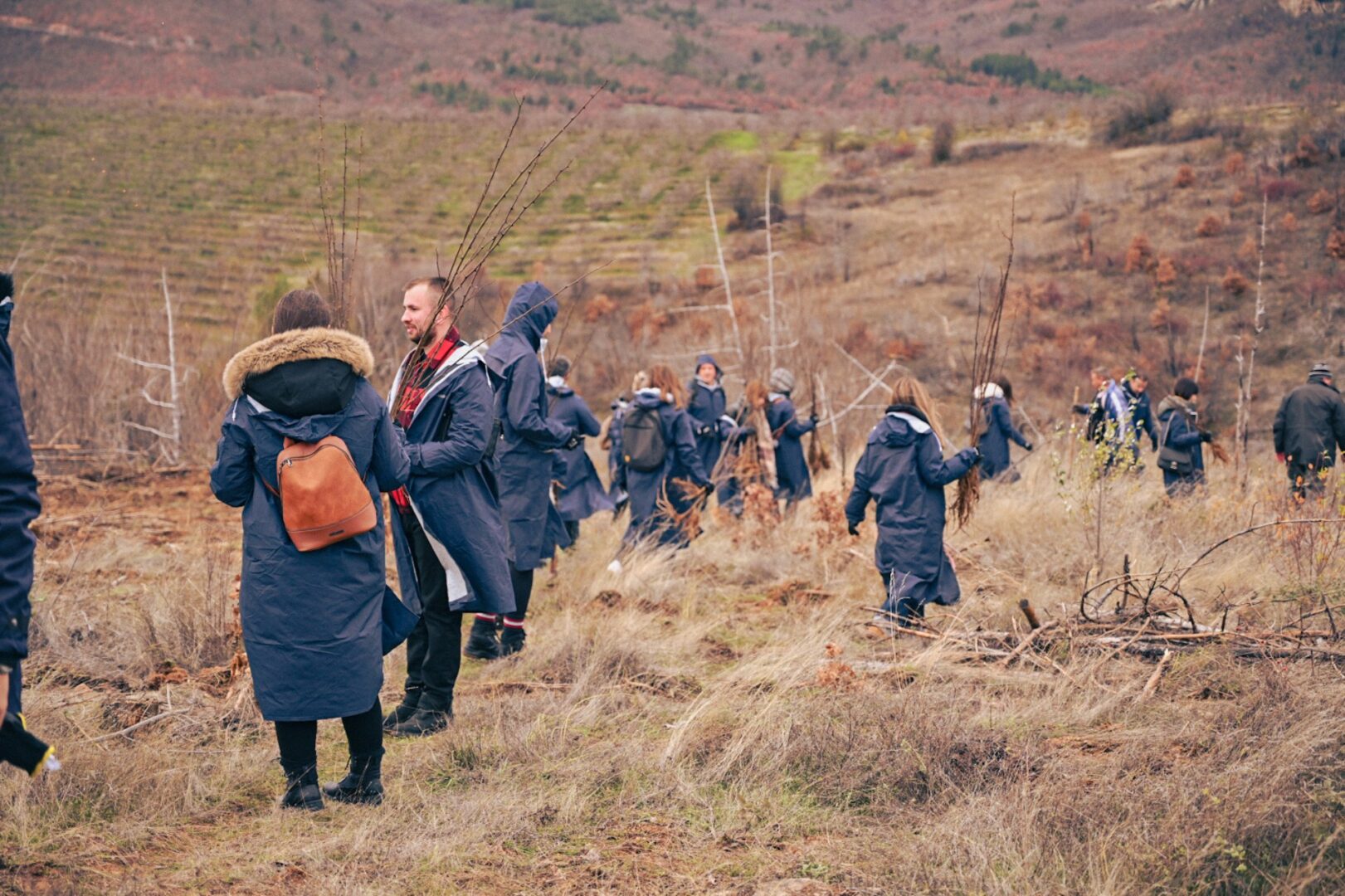
Халкбанк АД Скопје денес ја реализираше новата етапа од својата долгорочна зелена иницијатива „Еден милион садници за пет години“, со засадување багремови садници на површините од „HalkForest“ во Малешевијата, на локација во Делчево.
Акцијата беше спроведена во партнерство со ЈП Национални шуми и со учество на менаџментот на Банката, дел од вработените и стручни претставници од јавното претпријатие.
Ова пошумување е дел од најамбициозната еколошка програма на Халкбанк досега, иницијатива која што Банката ја започна минатата година, а е препознаена како системски придонес за борба против загадувањето, обновување на шумските екосистеми и подобрување на квалитетот на воздухот.
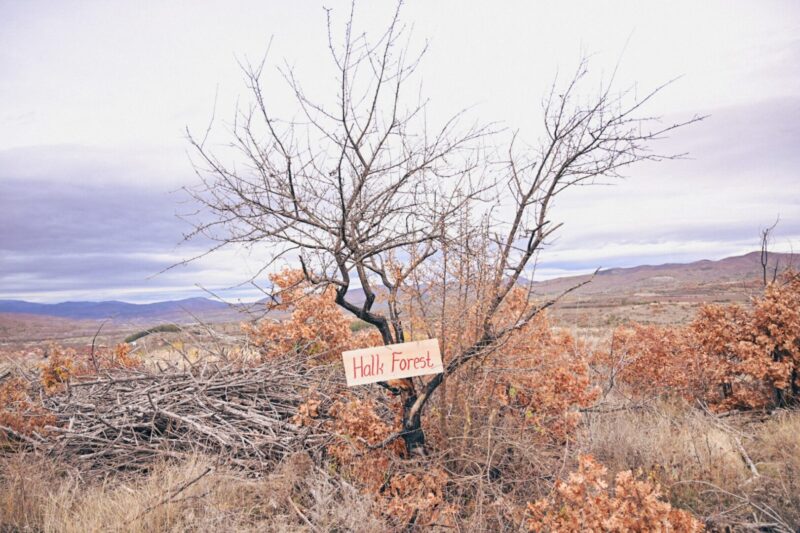
Со најновата акција, Халкбанк повторно ја потврди својата определба, одржливоста да биде трајна, а не декларативна обврска.
„За нас, одржливоста е дел од јасно поставена стратегија и подразбира постојана работа, планирање и вистински ангажман. Пошумувањето е активност со мерливи ефекти, го намалува загадувањето, ја подобрува еколошката рамнотежа и создава услови за поздрава средина. Со иницијативата ‘Еден милион садници за пет години’ покажуваме дека сме подготвени континуирано да инвестираме во решенија кои носат долгорочна вредност за сегашните и идните генерации,“ истакнаа од Халкбанк.
Акцијата во Делчево е дел од програмата што се реализира преку платформата ХалкЕко, преку која Банката во изминатите години засади над 100.000 садници, организираше спортски и еко настани, поддржува едукативни програми и придонесува кон уредување јавни простори низ државата.
Халкбанк останува посветена на исполнување на целта за засадување еден милион нови садници во период од пет години, со стратешки пристап и цврсто партнерство со институциите и локалните заедници.
(ПР)
Македонија
Г.г. Стефан: Да ги зацврстиме единството и слогата, да ги надминеме разногласијата и меѓусебните поделби
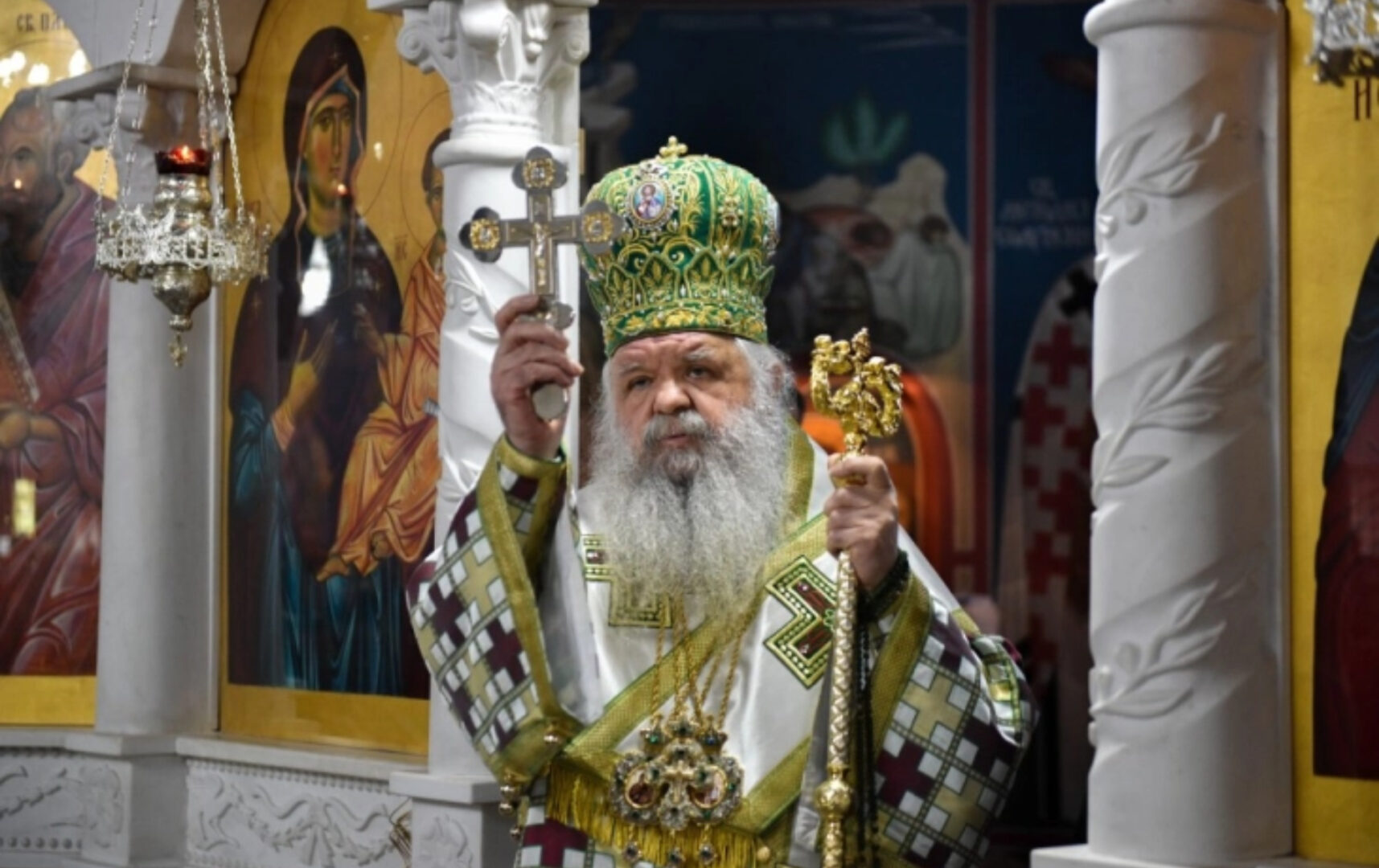
Ариепископот Охридски и македонски заедно со Светиот архиерејски Синод, по повод велигденските празнувања, испраќа мир и благослов од Бога до свештенослужителите, монаштвото и до сите чеда на МПЦ-ОА.
– Христовото воскресение е смислата на нашето севкупно постоење. Тоа е стожерот околу којшто се одвива сиот наш живот и камен-темелникот врз којшто се гради сиот наш подвиг на верата, на надежта и на љубовта во Бога. Тајната на Христовото воскресение го преобразува и го вообличува севкупниот наш поглед кон светот и човекот, кон времето и вечноста. Зашто, токму ова спасоносно собитие е најголемата вистина којашто му беше објавена на човековиот род и токму оваа Тајна над тајните е најрадосното благовестие со коешто велегласно беше возвестена конечната победа на животот над смртта, на доброто над злото и на љубовта над омразата, вели г.г. Стефан меѓу другото во обраќањето.
Македонија
Православните верници го слават Велигден
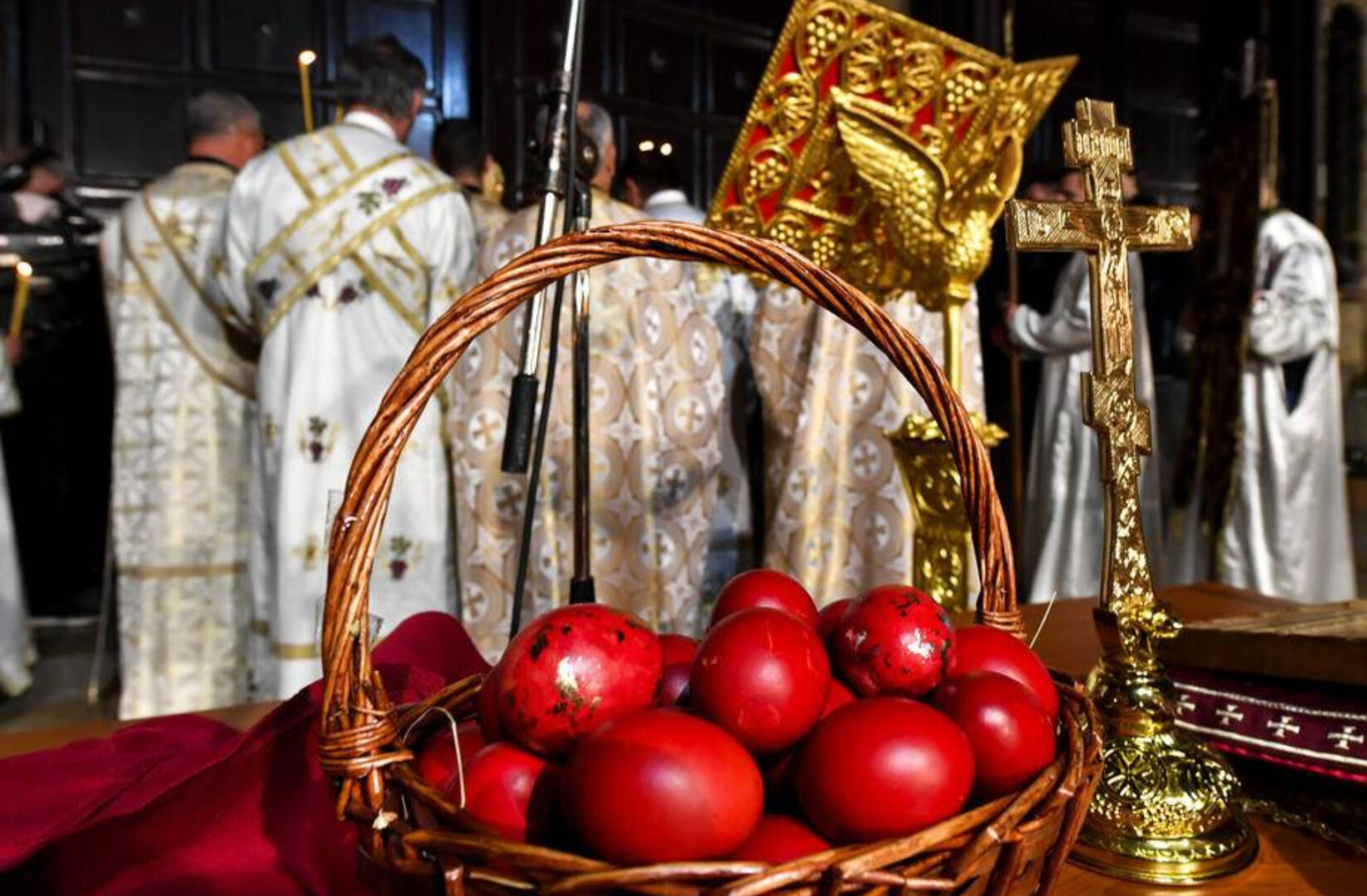
Православните верници денеска го слават најголемиот христијански празник Велигден – Христовото воскресение, ден кога Исус Христос ја докажал својата божествена моќ и воскреснал од мртвите. Воскресението Христово на полноќ беше објавено во сите храмови на Македонската православна црква, а денеска се одржуваат воскресенски литургии.
Поглаварот на МПЦ-ОА г.г. Стефан богослужеше во Соборниот храм „Свети Климент Охридски“ во Скопје од каде го објави Христовото Воскресение и упати Велигденски пораки.

